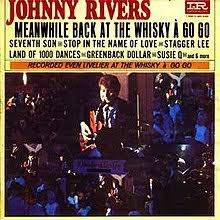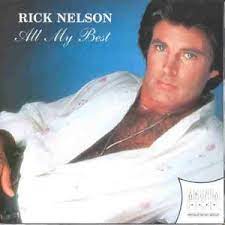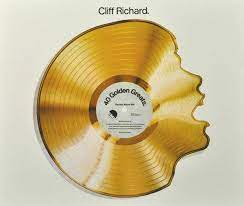Tutorial Pricing: $3.25ea OR any 10 for $10
(use code "Any10410" at checkout)
Paid Requests for $25ea
(comes with any 8 freebies -> so 9 for $25)
100's Of Free Demos & Chord Sheets
- Home
- 50s & Vegas
- Love Songs of Elvis Presley
Love Songs Of Elvis Presley
On The Acoustic
Welcome to my love songs of Elvis Presley page. There are 18 love songs here by the king you can easily learn on guitar abd I'll be adding more as time goes on.

Easy Elvis Guitar Songs
Elvis Songs In The 50s
Elvis Songs In The 70s
Elvis Songs From The Movies
12 Elvis Presley Wall Art
Help yourself to the free resources below and in the next few weeks I'll be fully completing the song sections below. If you'd like to purchase the full lesson tutorial, there is a link below for a small fee.
And I Love You SoAre You Lonesome Tonight
Ask Me
Baby What Do You Want Me To Do
Don't Cry Daddy
Fever
For The Heart
I Just Can't Help Believing
If That Isn't Love
I'll Remember You
It's Now Or Never
Love Me
Love Me Tender
Marie's The Name
Mary In The Morning
Power Of My Love
Return To Sender
Separate Ways
Stuck On You
Surrender
The Wonder Of You
Love Songs Of Elvis Guitar Presley
Chords, Demos, Lyrics, Tutorials
And I Love You So
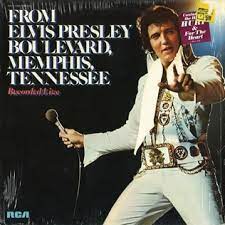
And I Love You So was written by folk singer-songwriter Don McLean, and it was first recorded by him in 1970. However, it is best known for Elvis Presley's version, which was recorded in 1976.
Elvis recorded the song on March 15, 1976, at the Jungle Room studio in his Graceland home in Memphis, Tennessee. The recording was produced by Felton Jarvis and featured Elvis on lead vocals and acoustic guitar, backed by a small group of musicians that included James Burton on electric guitar, Charlie Hodge on acoustic guitar and backing vocals, and Ronnie Tutt on drums.
Elvis' version of "And I Love You So" was released as a single in August 1976 and included on his album "From Elvis Presley Boulevard, Memphis, Tennessee." The song peaked at number 16 on the Billboard Hot 100 chart and number 2 on the Adult Contemporary chart.
The arrangement of Elvis' version of the song is simple and stripped down, highlighting his powerful and emotive vocals. The song features a gentle acoustic guitar riff that complements Elvis' voice, creating a hauntingly beautiful and poignant atmosphere.
Jump To Top
Are You Lonesome Tonight
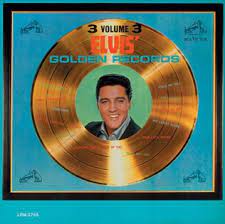
Are You Lonesome Tonight is one of Elvis Presley's most iconic and well-known songs. It was released as a single on November 1, 1960.
The
single became a massive hit, reaching No. 1 on the Billboard Hot 100
chart and staying there for six weeks. It also reached No. 3 on the UK
Singles Chart.
The song is a ballad with a melancholic and introspective tone. Elvis' emotional and heartfelt vocal delivery is a defining feature of the song.
Elvis recorded "Are You Lonesome Tonight?" on April 4, 1960, at RCA Studios in Nashville, Tennessee. The session was part of his return to recording after his military service
Jump To Top
Ask Me
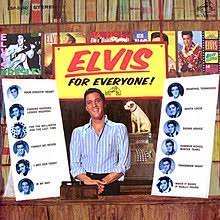
Ask Me is a song that is often associated with the B-side of his hit single "Ain't That Loving You Baby." Elvis recorded "Ask Me" on June 25, 1964, at RCA Studios in Nashville, Tennessee and released it as the B-side of the single "Ain't That Loving You Baby," which came out on September 11, 1964. The single "Ain't That Loving You Baby" / "Ask Me" reached No. 16 on the Billboard Hot 100 chart.
"Ask Me" is a ballad that features Elvis' emotive and soulful vocal delivery. It showcases his ability to convey deep emotions through his singing.
The track was later included on Elvis Presley's album "Elvis for Everyone!" released in 1965. It has also been featured on various compilation albums. While not as widely recognized as some of his more iconic hits, "Ask Me" is appreciated by Elvis fans for its emotional performance and lyrical content.
Jump To Top
Baby What Do You Want Me Do To
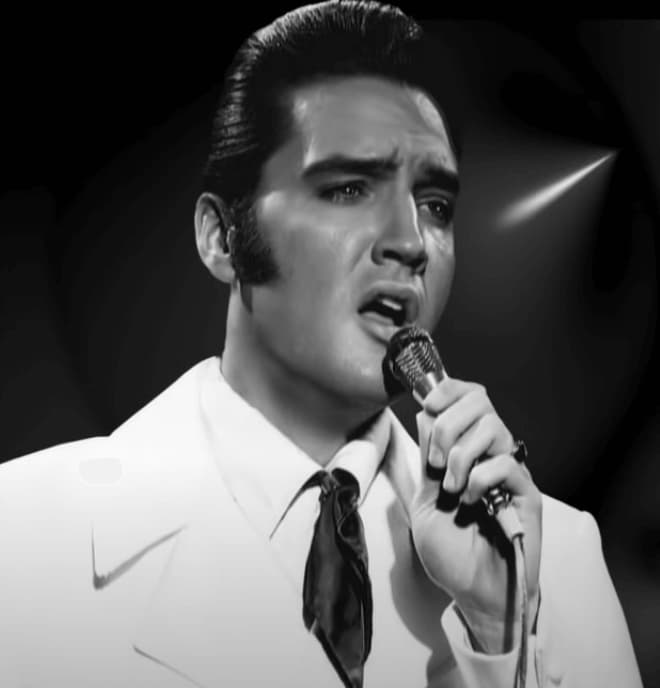
Baby, What You Want Me to Do is a blues song that Elvis performed live on numerous occasions, especially during his later years.
It was originally written by Jimmy Reed. Reed recorded the song in 1959, and it became one of his popular tracks.
Elvis Presley often included "Baby, What You Want Me to Do" in his live concerts, especially during the late 1960s and early 1970s. He frequently performed it in his "Comeback Special" in 1968 and during his Las Vegas residencies.
The song is a blues shuffle with a catchy rhythm and simple yet effective lyrics. Elvis' rendition often allowed him to showcase his versatility and his ability to connect with different musical styles.
Elvis would often play the guitar during his performances of "Baby, What You Want Me to Do," adding to the raw and authentic bluesy feel of the song.
One of the notable aspects of Elvis' performances of this song was his tendency to extend and improvise sections, allowing for instrumental solos and audience engagement. While Elvis performed "Baby, What You Want Me to Do" frequently in his live shows, there is no official studio recording of him singing this song. Most of the well-known versions are from live concert recordings.
Jump To Top Love Songs Of Elvis Presley
Don't Cry Daddy
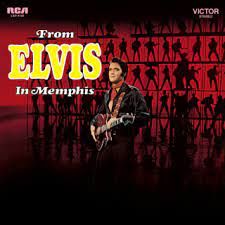
Don't Cry Daddy is a touching ballad that Elvis recorded during his later years. Elvis recorded "Don't Cry Daddy" on January 15, 1969, and released it as a single in 1969, with "Rubberneckin'" as the B-side. It was later included in Elvis' studio album "From Elvis in Memphis," which was released in 1969.
"Don't Cry Daddy" is a sentimental ballad that features Elvis' emotive vocal delivery. The song reflects themes of comfort and reassurance.
The single "Don't Cry Daddy" reached No. 6 on the Billboard Hot 100 chart.
This one is in standard tuning with a steady down down up down up down up down up down up down up down up and repeat rhythm pattern. No lead work in this one with the chords D, C, Gb, G, C, A7, Em and a D/Gb.
Jump To Top
Fever
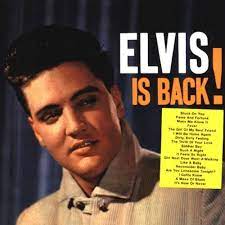
Fever is a song that was originally written by Eddie Cooley and Otis Blackwell and was first recorded by Little Willie John in 1956. However, Elvis Presley recorded his version of "Fever" in 1960.
Elvis's version of "Fever" is slightly different from the original. While Little Willie John's version had a more traditional R&B arrangement, Elvis's rendition infused his signature rock 'n' roll style into the song.
Elvis Presley's cover of "Fever" was included on his album "Elvis Is Back!," which was released in 1960. The album marked his return to the music scene after serving in the US Army.
Elvis's version of "Fever" has been well-regarded and remains a notable entry in his discography. It showcased his vocal versatility and ability to put his own stamp on classic songs, making them unique to his style.
This song is very different than most because you'll be playing some
bass riffs throughout the singing in the verses. The only rhythm is a
few quick 1-2-3-4-5-6-7 drum roll as you'll see. Then it's back onto the
bass playing. There are only three chords in this one and they are C-G7- and a Cm. I'm
putting in an improvised picking break but you can just keep doing
rhythm if you'd like.
Jump To Top
For The Heart
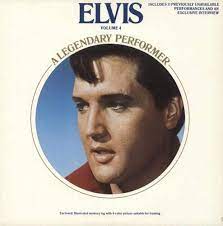
For the Heart was written by Dennis Linde and was released as a single in 1976. The song has a country-rock feel and showcases Elvis's distinctive vocal style.
The song was recorded during a session at the Graceland home studio in Memphis, Tennessee, on March 10, 1976. It was one of the last songs Elvis recorded before his passing in August 1977.
The single release of "For the Heart" included "Hurt" on the B-side. "For the Heart" performed moderately well on the charts, reaching the top 40 on the Billboard Hot 100 and hitting the number six spot on the Hot Country Singles chart. The song's success in the country genre highlighted Elvis's continued popularity in various music markets.
For the Heart" has since been included on various Elvis Presley compilation albums and greatest hits collections. One notable album that includes "For the Heart" is "Elvis: A Legendary Performer Volume 4," released in 1983. This compilation album features a selection of Elvis's later recordings and includes "For the Heart" among its tracks.
In the original key of D, this one is very high vocally. So my
version here is in the key of G, followed by the C, D and A7 chords.For
rhythm in this, just play a steady up and down but the G chord is
alternating with a C/G in the bass as you'll see in the demo.There is a bit of picking in one segment in this song.
Jump To Top
I Just Can't Help Believing
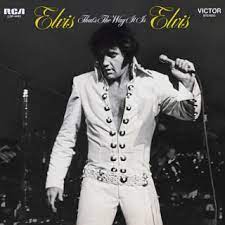
I Just Can't Help Believin' is a song that Elvis recorded during his later years as a performer. It was written by Barry Mann and Cynthia Weil, and it was originally released by B.J. Thomas in 1970. However, Elvis Presley also recorded a cover version of the song, which was included on his 1972 album "That's The Way It Is".
Elvis Presley's rendition of "I Just Can't Help Believin'" is considered one of his standout performances from his later years, showcasing his continued vocal prowess and ability to convey deep emotions through his music. The song features lush instrumentation, including piano, strings, and a choir, which adds to its grand and sweeping quality.
"I Just Can't Help Believin'" received critical acclaim for Elvis Presley's soulful interpretation of the song, and it remains a popular and enduring track in his discography.
The song was released in the UK as a single and reached #6 on the UK singled chart in 1971.
Jump To Top
If That Isn't Love
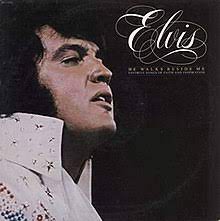
If That Isn't Love was written by Dottie Rambo and was included on Elvis's gospel album titled "He Walks Beside Me," released in 1978. The album features a collection of Elvis's gospel recordings from various points in his career.
"If That Isn't Love" is a powerful and emotional gospel song that showcases Elvis's vocal range and his ability to convey deep spiritual sentiments. The song reflects themes of faith, devotion, and the love of God.
While "If That Isn't Love" was not released as a single, it remains a significant and cherished song among Elvis fans, particularly those who appreciate his gospel music. The album "He Walks Beside Me" has been well-received by audiences and includes several other beloved gospel tracks recorded by Elvis Presley.
Jump To Top
I'll Remember You
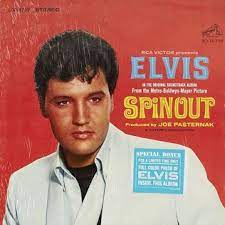
I'll Remember You is a song written by Kui Lee and was first released by Elvis in 1966 on his album titled "Spinout." The song showcases Elvis's soothing and heartfelt vocals, and it is often described as a beautiful and sentimental ballad.
"I'll Remember You" became a fan favorite and has remained popular throughout the years. It has been included on various compilation albums and continues to be appreciated for its emotional impact. The song reflects themes of longing, nostalgia, and the enduring power of memories.
Elvis also performed "I'll Remember You" in his live concerts, and recordings of these performances have been released posthumously. The song holds a special place in Elvis's repertoire and is recognized as one of his memorable recordings.
Jump To Top
It's Now Or Never
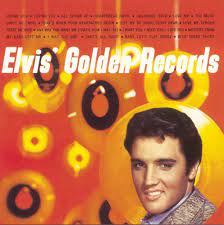
It's Now or Never was released as a single in 1960 and became one of his biggest hits. The song is based on the Italian song "O Sole Mio," with English lyrics written by Aaron Schroeder and Wally Gold.
"It's Now or Never" showcases Elvis's powerful vocals and incorporates elements of pop, opera, and rock and roll. The song is known for its dramatic and passionate delivery, capturing the intensity of love and the urgency of seizing the moment.
The single achieved tremendous success, reaching number one on the Billboard Hot 100 chart and becoming one of Elvis's signature songs. It also topped the charts in several other countries and remains one of his most recognizable and beloved recordings.
"It's Now or Never" has been included on various Elvis Presley compilation albums and remains a staple in his discography.
Jump To Top Love Songs Of Elvis Presley
Love Me
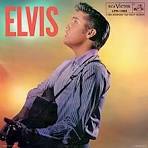
Love Me was first released as a single in 1956 and then appeared on the 1957 album simple titled Elvis.
The song became a #2 hit on Billboard and also topped the country charts that same year. Elvis often sang this song at his early performances.
Jump To Top
Love Me Tender
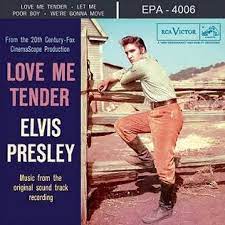
Love Me Tender is one of Elvis Presley's most iconic and beloved songs. It was based on the Civil War-era ballad "Aura Lee." Elvis's version was written by Ken Darby, with music adapted from "Aura Lee." The lyrics capture a heartfelt and tender expression of love.
The song was released as a single on September 28, 1956, and it became an instant hit. It was also featured in Elvis's film of the same name, which was released shortly after.
"Love Me Tender" marked Elvis's film debut in the movie of the same title, originally titled "The Reno Brothers." The film was a western drama, and the song served as its theme. Due to the success of the song, the film's title was changed to match the song's title.
Elvis recorded "Love Me Tender" on August 24, 1956, at 20th Century Fox Stage One in Hollywood, California. It was recorded in just a few takes, and the simplicity and sincerity of the performance added to its appeal.
Jump To Top
Marie's The Name (Of His Latest Flame)
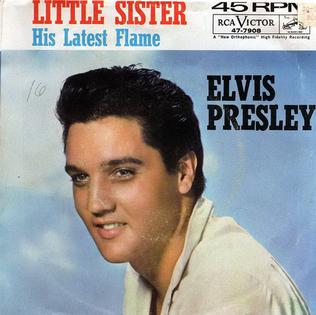
Marie's The Name Of His Latest Flame was first released by Del Shannon in the summer of 1961. By later summer of that year, Elvis took his shot at the song and made it the b-side to his single Little Sister. This track did very well and mad it into the top 10 while Little Sister went on to become a #1 hit in 1961.
This one has a steady up and down shuffle to it but with a double down stroke when you hit the Em chord. You'll also need a G, C and a D chord in this one but no lead work in standard tuning.
Jump To Top
Mary In The Morning (fingerpicking)
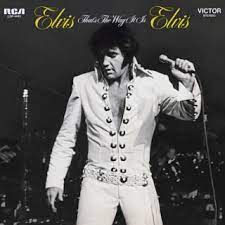
Mary In The Morning was made successful by Al Martino where is reached #1 in 1967.
It is a beautiful and heartfelt song that Elvis recorded in 1970. It was written by Michael Rashkow and Johnny Cymbal and was featured on Elvis Presley's album "That's the Way It Is", released in 1970.
The lyrics express admiration and love for a woman named Mary, who is described as bringing light and joy to the morning. The song's gentle melody and heartfelt lyrics create a soothing and romantic ambiance, capturing the essence of enduring love.
The musical arrangement of "Mary in the Morning" features a soft and melodic blend of piano, strings, and backing vocals, which complement Elvis Presley's vocals and add to the song's emotional impact. The song is known for its heartfelt and sincere delivery, with Elvis Presley's vocals conveying a sense of vulnerability and tenderness. My version here is a finger-picking version.
Canadian entertainer Tommy Hunter also reached the top of the Canadian charts with his version.
Jump To Top Love Songs Of Elvis Presley
Power Of My Love
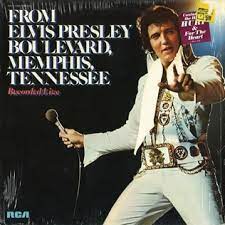
Power Of My Love hails from the 1969 album Elvis Presley In Memphis Tennessee. This song was never released as a single.
Jump To Top Love Songs Of Elvis Presley
Return To Sender
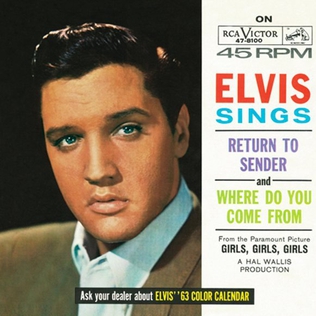
Return To Sender was a single release from the album Girls Girls Girls from 1962. The song became a #1 in the UK, Ireland and a #2 in the US, krpt out of the top spot by Big Girls Don't Cry by The Four Seasons.
I play this one with a drop D tuning with the chords D, Bm, Em, A7, G. A and an E7. No lead work but full of walking bass riffs as you play steady down up down up rhythm pattern.
Jump To Top Love Songs Of Elvis Presley
Separate Ways
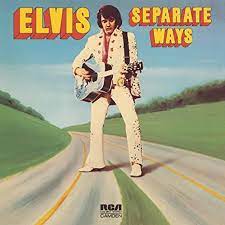
Separate Ways is a song recorded by Elvis Presley in 1972. It was released as a single and also appeared on his album titled "Burning Love and Hits from His Movies, Volume 2."
The track was released as a single on January 9, 1973. The B-side of the single was "Always on My Mind."
"Separate Ways" is a ballad with a melancholic and reflective tone. It's characterized by Presley's emotive vocal delivery and the arrangement that emphasizes the song's heartfelt lyrics.
The rhythm of this one starts with a bit of arpeggio in the D chord
position and then moves through the Dmaj7 and D7. When you start to play
rhythm just use a down down up down up down up pattern and repeat as
you move through the song. The chords you'll need are D, Dmaj7, D7, G, Em and an A or A7.
Jump To Top Love Songs Of Elvis Presley
Stuck On You
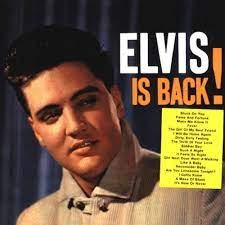
Stuck on You was released as a single in March 1960 and became a major hit for Elvis.
The song was written by Aaron Schroeder and J. Leslie McFarland and it reached number one on the Billboard Hot 100 chart and stayed there for four weeks. The song features Elvis's signature rock and roll sound combined with a catchy melody and romantic lyrics.
The track can be found on several Elvis including his 1960 album Elvis Is Back.
Jump To Top Love Songs Of Elvis Presley
Surrender
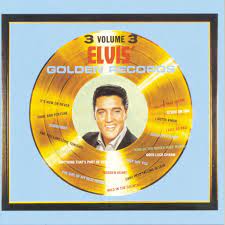
Surrender was a huge hit for Elvis in 1961 hitting #1 in several countries and a top 5 in many others.
The song hails from the album "Elvis' Golden Records Vol 3".
I play this one in standard tuning with down strokes and the down down up down up down up and repeat. No lead work with the chords Dm, Gm, A7, Dmaj7, D, Em, Gbm and Bm.
Jump To Top Love Songs Of Elvis Presley
The Wonder Of You
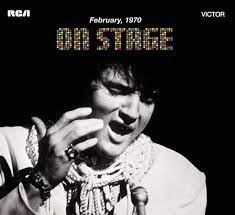
The Wonder Of You was recorded as a live performance in 1970 and appeared on the "Live Stage" album.
As happened a few times, an Elvis song would score a #1 hit on the US country charts and that's what happened with this song. The song also hit #1 in Denmark and the UK.
This one has a down up stop up down down up stop up down and repeat rhythm pattern in standard tuning but some lead work. The chord you'll need are D7, G, Em, Am, D7sus, D7, G7, Em, E7, C, Bm and a D#.
Jump To Top Love Songs Of Elvis Presley
Thanks for stopping by love songs of Elvis Presley page and I hope you found the info listed here helpful and useful.
If you liked this love songs of Elvis Presley page you might also like ... (click images)
Best Elvis Songs Documentary
Top Hits Of The 50s
